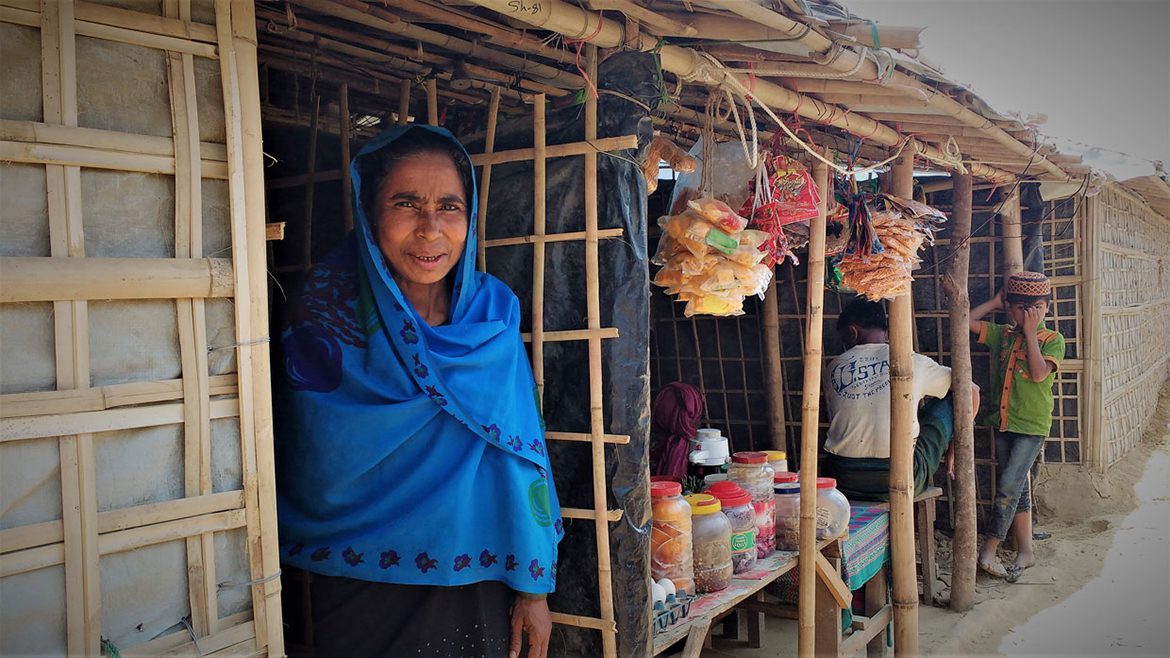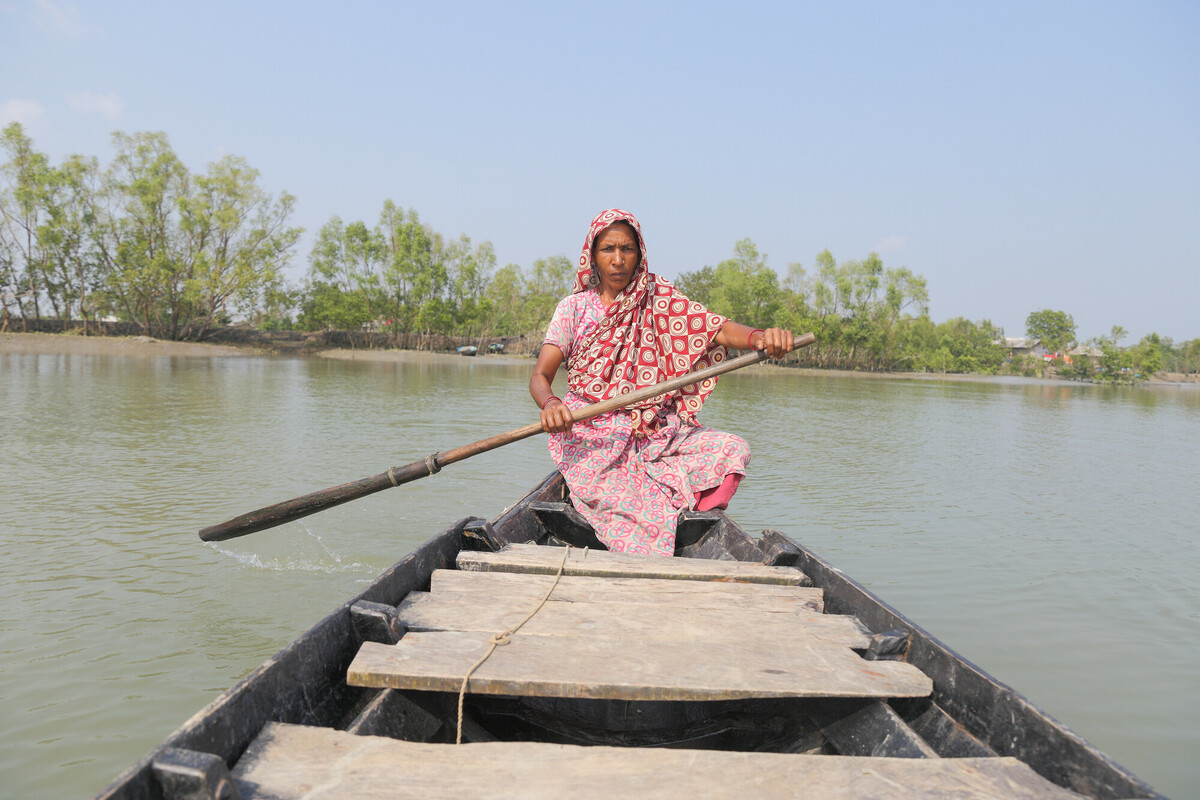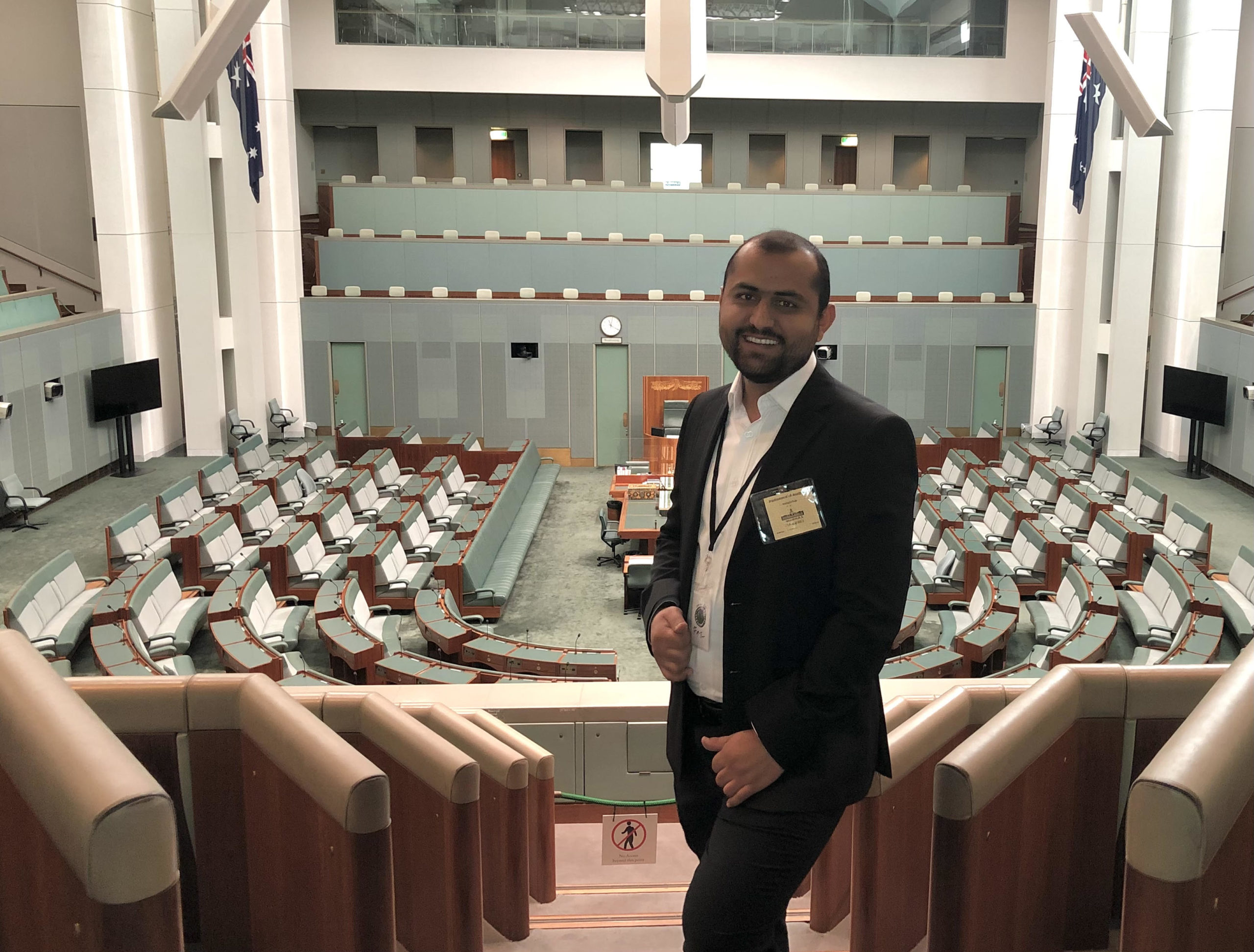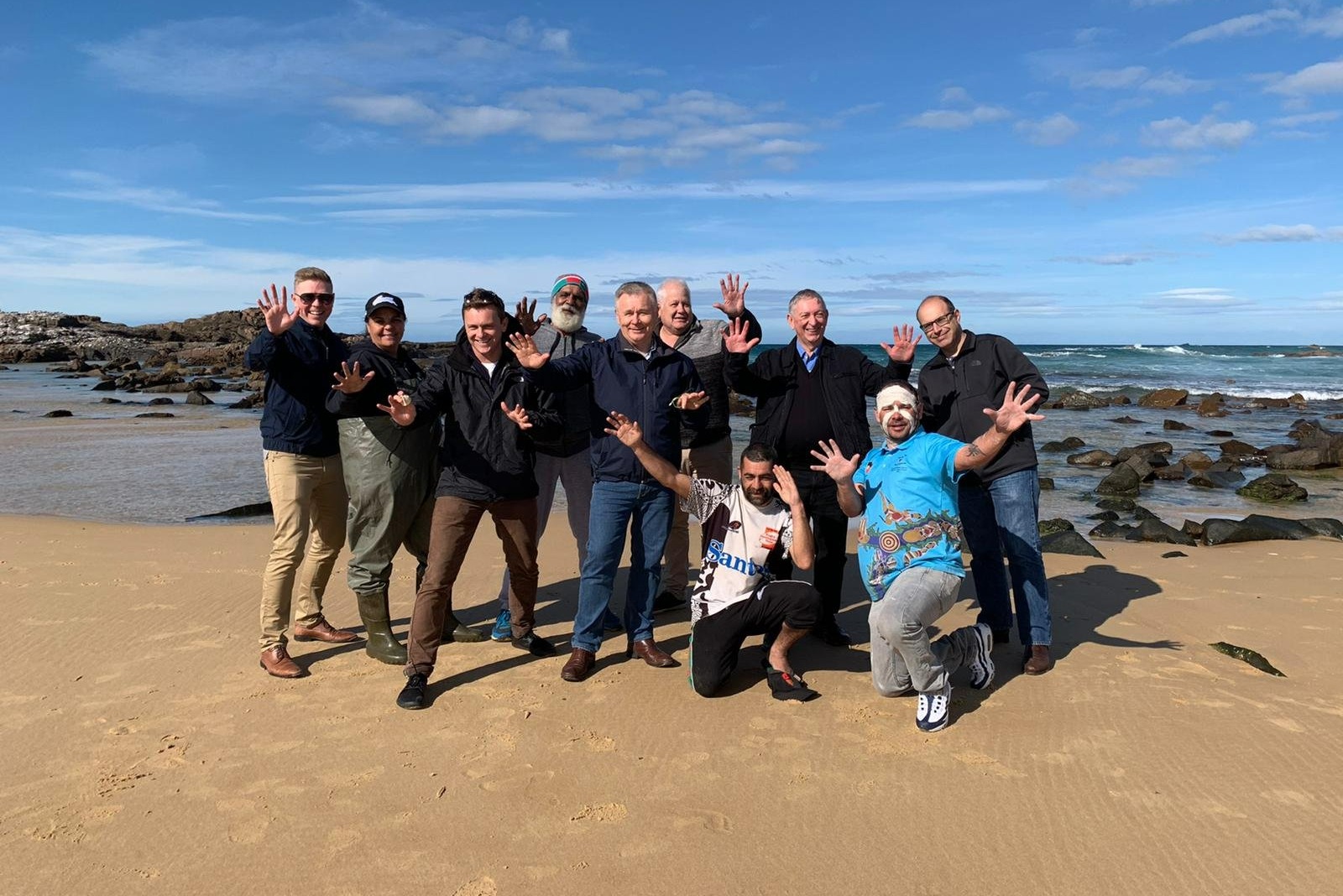Rajiah, 46, fled violence near her home in Myanmar six months ago, with her younger daughter, who is 15 years old. She is now living in a refugee camp in Bangladesh with thousand other Rohingya.
Rajiah is one of close to a million Rohingya people have fled violence in Myanmar to seek refuge across the border in Bangladesh. This unprecedented number of refugees, of whom more than half are children, has caused a large-scale humanitarian crisis.
Women helping women survive and thrive
Rajiah has been surrounded by women throughout her life as the eldest of 10 sisters. She herself has five daughters, two of which are also in camps living as refugees in Bangladesh with their husbands, while the other two remain in Myanmar. Tragically, Rajiah’s husband disappeared when the violence broke out in Myanmar and Rajiah has no way of knowing where he is. Like so many women in the camp, Rajiah must head up her household alone.
Oxfam has come to know Rajiah as a leader when she was unanimously selected to represent her community during an Oxfam assessment of what their most pressing needs were. Rajiah is well educated and has been working with and for her community throughout her life. She told us that she delivered some 10,000 babies as a midwife in Myanmar.
Now, as a refugee in Bangladesh, she is making sure she puts her experience to good use and supports and provides information to the pregnant women in her community. Her name means “Hope” – a true reflection of her personality and life’s work.

Rajiah outside her home in the refugee camp on her way to visit her pregnant neighbor in Cox’s Bazar, Bangladesh. Photo: Maruf Hasan/Oxfam
Rajiah brings leadership to Cox’s Bazar
Rajiah was born in a relatively affluent family in Myanmar. Education was an important part of her childhood, and her family made sure all the girls had eight years of schooling. Rajiah speaks particularly highly of her father, who she says was the greatest influence in her life.
Rajiah honed her leadership skills from a young age, starting at school as a class leader. Later, organisations who were working in her community, including the UN, selected Rajiah as one of their volunteers. She continued working as a health worker and played a major role in the vaccination process in her area, helping to prevent children dying needlessly from preventable illnesses.
Rajiah is outspoken and confident, a full believer in women’s role outside the household. That way, she says, women can get knowledge and they can advance – and then other women can also come forward simply by seeing these role models. She is very keen on working and further helping her community, especially the women in her community.

Rajiah shares health information with a pregnant woman in her home in Cox’s Bazar, Bangladesh. Photo: Maruf Hasan/Oxfam
Oxfam is there
Oxfam is planning to organise women’s groups in the camps and Rajiah is the ideal person to lead this process in her community. With her leadership skills, kind and warm personality, she will undoubtedly make great progress with the women in the community.
Oxfam is also currently focusing on providing water and sanitation and adapting to better deal with the crowded conditions and sheer numbers of people. We are drilling wells and installing water points, toilets and showers.
We’re also helping people stay healthy and hygienic by distributing soap and other essentials and working with community-based volunteers to emphasize the importance of clean water and good hygiene, especially as monsoon season approaches.
So far, we have reached at least 185,000 people, and hope to reach more than 250,000 in the coming months.
Your support has been vital in this effort – thank you.

Rajiah on her rounds, walking through the refugee camp in Cox’s Bazar, Bangladesh. Photo: Maruf Hasan/Oxfam
This entry posted by AJM Zobaidur Rahman, Campaigns and Communications Officer, Oxfam in Bangladesh, on 27 March 2018.
*Name changed.
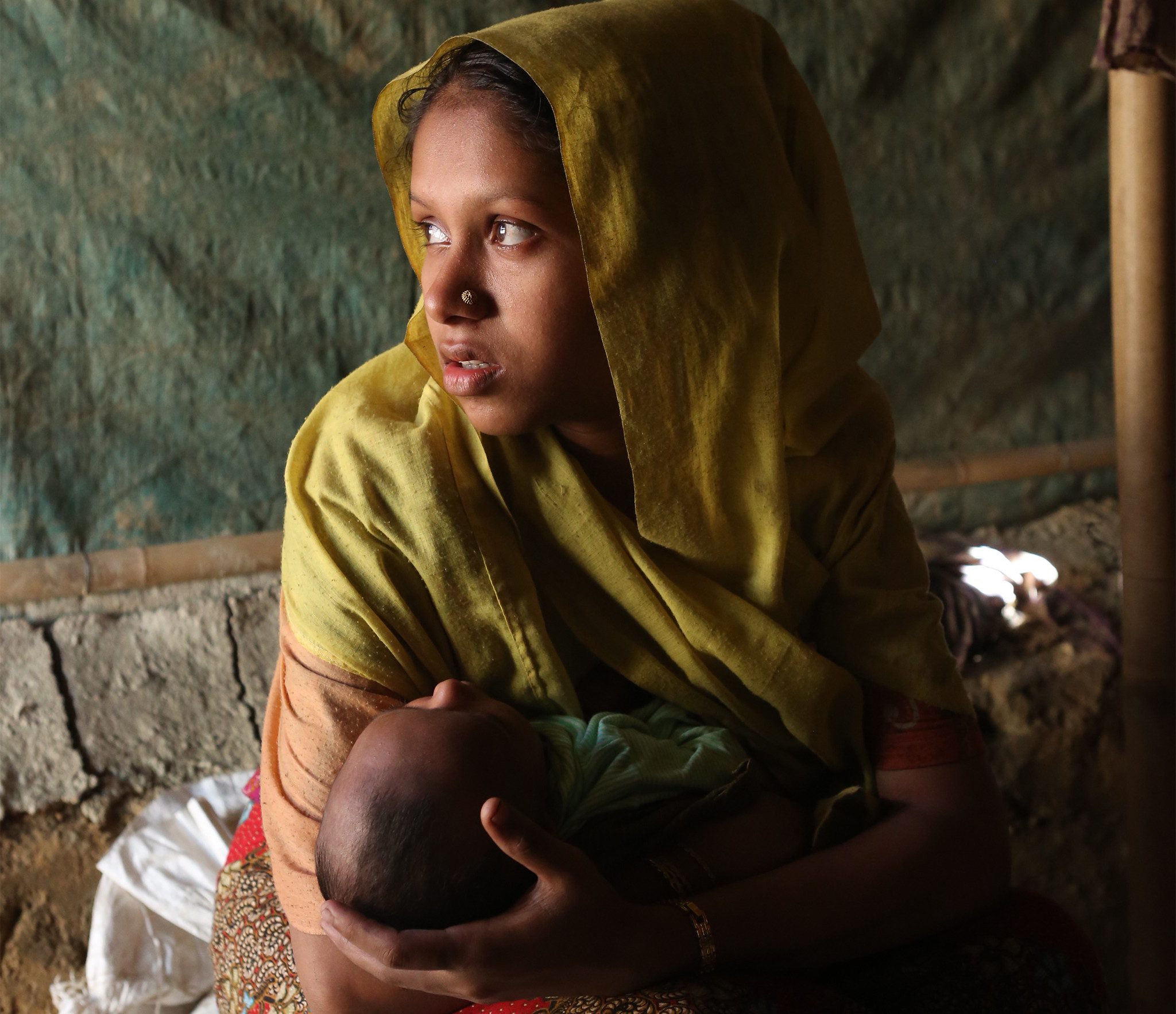
Donate to the Bangladesh Rohingya Refugee Crisis
Your donation is essential to help Oxfam provide access to food, water and sanitation for women, children and men in Bangladesh refugee camps.
